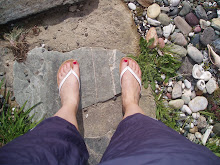The research process consists of about nine total stages whether in the field of medicine, massage therapy or social sciences. These are: ideas/observations, background reading/literature review, the methodology and thus the methods, data collection and analysis, results and implications, conclusion, budget considerations and references.
During the initial stage an idea begins to form. In the medical arena this is facilitated by observation (McQueen, 2009). In more philosophical studies, it is assisted by the process of brainstorming and asking questions.
The next natural step to take is to find out more information from other reputable sources about this idea, and whether this idea is new. Variations on the idea may also be uncovered, adding to its growth and refinement. This is also called the background reading/literature review portion, adding to the general knowledge about the subject matter and idea.
The methodology employed is the next portion of the process and this determines the types of methods we use and why we use them in our quest for the truth (ontology) regarding this idea.
The methods themselves are the next stage in which the hypothesis itself is put to the test through the use of these methods, which for example, may include measurements and baselines. (Corsini, 1994)
Data collection and analysis is the part of the research process in which data gained via the methods is investigated, compared to norms and becomes the fatual basis in our goal to prove the hypothesis.
Once we have collected the data and analysed it, we end up with a group of results (the size of which depends on the amount of tests undertaken.) From these results we can infer implications regarding the original hypothesis and what these implications may now mean for the area we are researching (eg. massage therapy).
This would lead us to the conclusion of our proposal based on our recent inferences, results and data as well as related empirical research (Wikipedia, 2009) which may have been conducted around hypotheses of a similar nature.
Budget considerations are necessary to ensure that the research proposal is viable and realistic to put into action.
References allow your work to be traced and can invite readers of the research to conduct their own background reading on the subject, potentially drawing their own conclusions based on further exploration.
The research process is a valuable tool with which researchers can expound the benefits or detriments of the hypothesis and subsequently, what this would mean for the profession in question.
References:
Corsini, R. (1994) Encyclopaedia of Psychology. Michigan: J. Wiley & Sons.
McQueen, F. Telephone interview. Thursday 5th March, 2009.
Empirical research. Wikipedia. Retrieved 6th March 2009 from: http://en.wikipedia.org/wiki/Empirical_research

Hi tessa
ReplyDeletea good and thorough approach to defining the research process. I think it is an unwieldy area and at times your language confines what you are saying - that is truth/ factual - as much as methods fit with their methodolgy - design and strategy - the theoretcial premis must fit with an epistemology - a scaffold about the knowledge (not just of your discipline area but also of the nature of knowledge itself) already encountered - so the theoretical framework - literature review is a lot more than background reading - it forms an essential part of your rationale for doing quality research. Otherwise - well done
Felicity